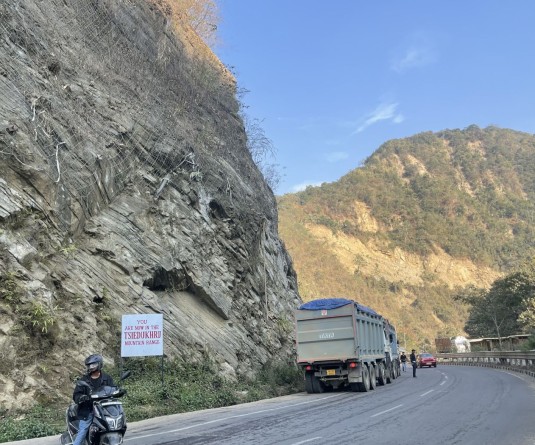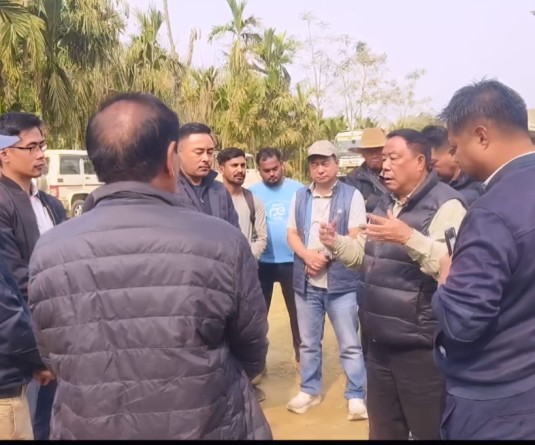Members of the Native American Jazz Quartet performing at the Toyota Hornbill Music Festival on December 2.

Morung Express News
Kohima | December 2
Delbert Dale Anderson, a member of the Native American Jazz Quartet, emphasized the vital role of artists in preserving indigenous cultures. He stated, “When you put artists on stage, they actually educate people on indigenous ways,” reflecting on the significance of platforms like the Hornbill Festival. “It is so great that you have an indigenous festival,” he continued, adding that such stages allow the world to be educated about indigenous cultures and foster positive change.
The quartet, formed 15 years ago, strives to uplift the original songs of their heritage through jazz. With members hailing from diverse backgrounds—Delbert Dale Anderson (Trumpet Artist), Edward William Littlefield II (Percussionist), Michael Bartholomew Glynn (Double Bass Player), and Reuel Vallester Lubag (Pianist/Drummer)—they spoke of their strong connection to the Naga culture, resonating with its traditional sounds, melodies, and symbols like birds' feathers.

Interacting with the media at Kisama before their performance at the Toyota Hornbill Music Festival on December 2, Ed Littlefield expressed admiration for the festival as a platform for indigenous voices. “Having an opportunity for your artists is a great thing because everyone is talking about representation,” he said. Further discussing the integration of culture into everyday life, he praised the indigenous branding on the Nagaland Coffee Cup, calling it “super cool.” “I think that if we don’t use it, it becomes a dead culture,” he added.
Representing the United States at the festival, Littlefield also noted the significance of showing that indigenous people can embrace both their roots and their American identity. “As an indigenous person, it’s good to show that we can be both an indigenous person and an American,” he shared.
Michael Bartholomew Glynn expressed awe at the pride the Naga people have in their culture. “The pride that Naga people have in their culture is so overwhelming,” he said. He also noted the breathtaking natural beauty of the region, stating, “The natural beauty that clings to the mountaintop is something I will never forget.” Representing the U.S. at the Hornbill Festival, Glynn underscored that their participation was a testament to the strength and diversity of cultures.
Reuel Vallester Lubag reflected on the connection between jazz and indigenous backgrounds in the U.S. “Jazz has had a lot of folks who have had indigenous background,” he said, highlighting that, as human beings, “we are all trying to do the same thing—to better ourselves, our families, and those around us. We all move forward, and everything goes back to our ancestors.”
The Native Jazz Quartet, known for their energetic performances rooted in the swing/bebop tradition, integrates native and folk melodies into their arrangements. Their goal is to grow the Native Jazz movement, attract a national and international audience, and transform their performances into cultural stories that inspire standing ovations.






